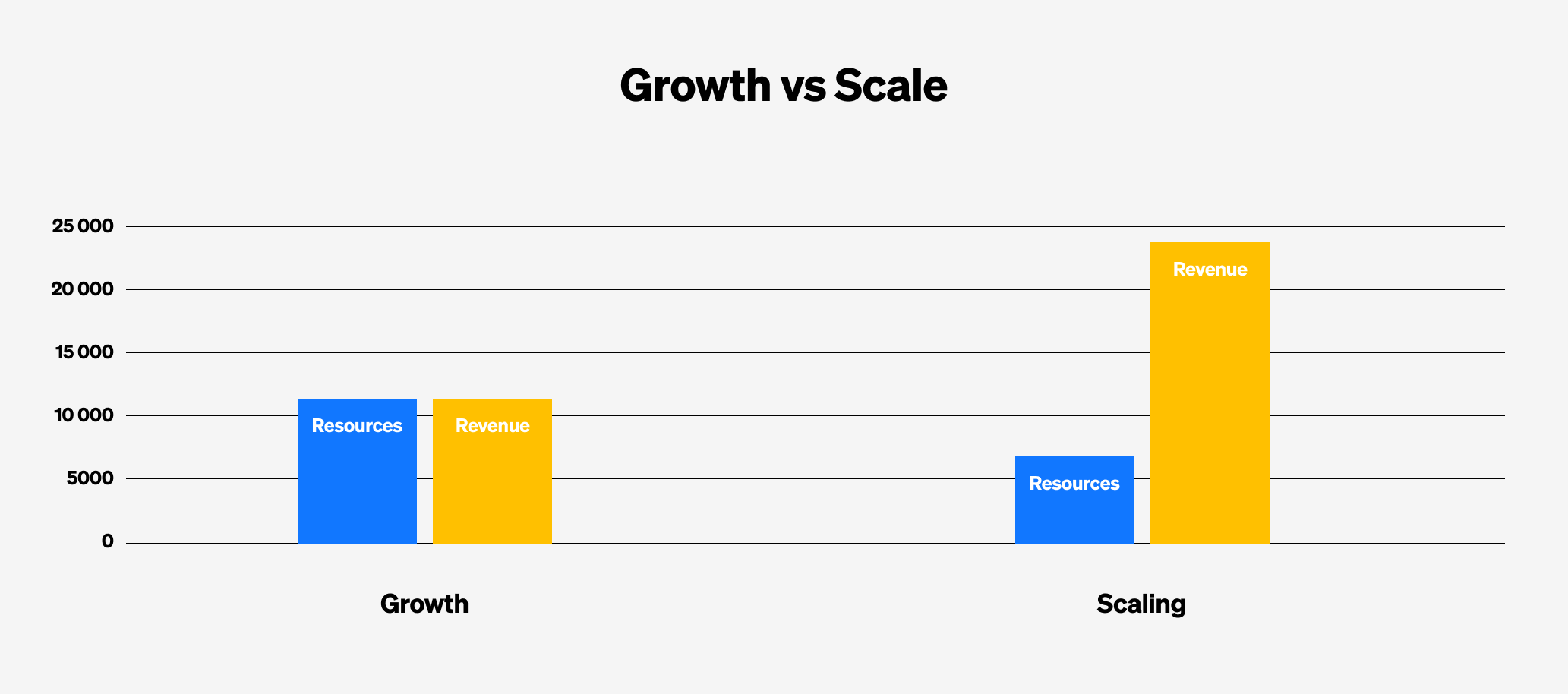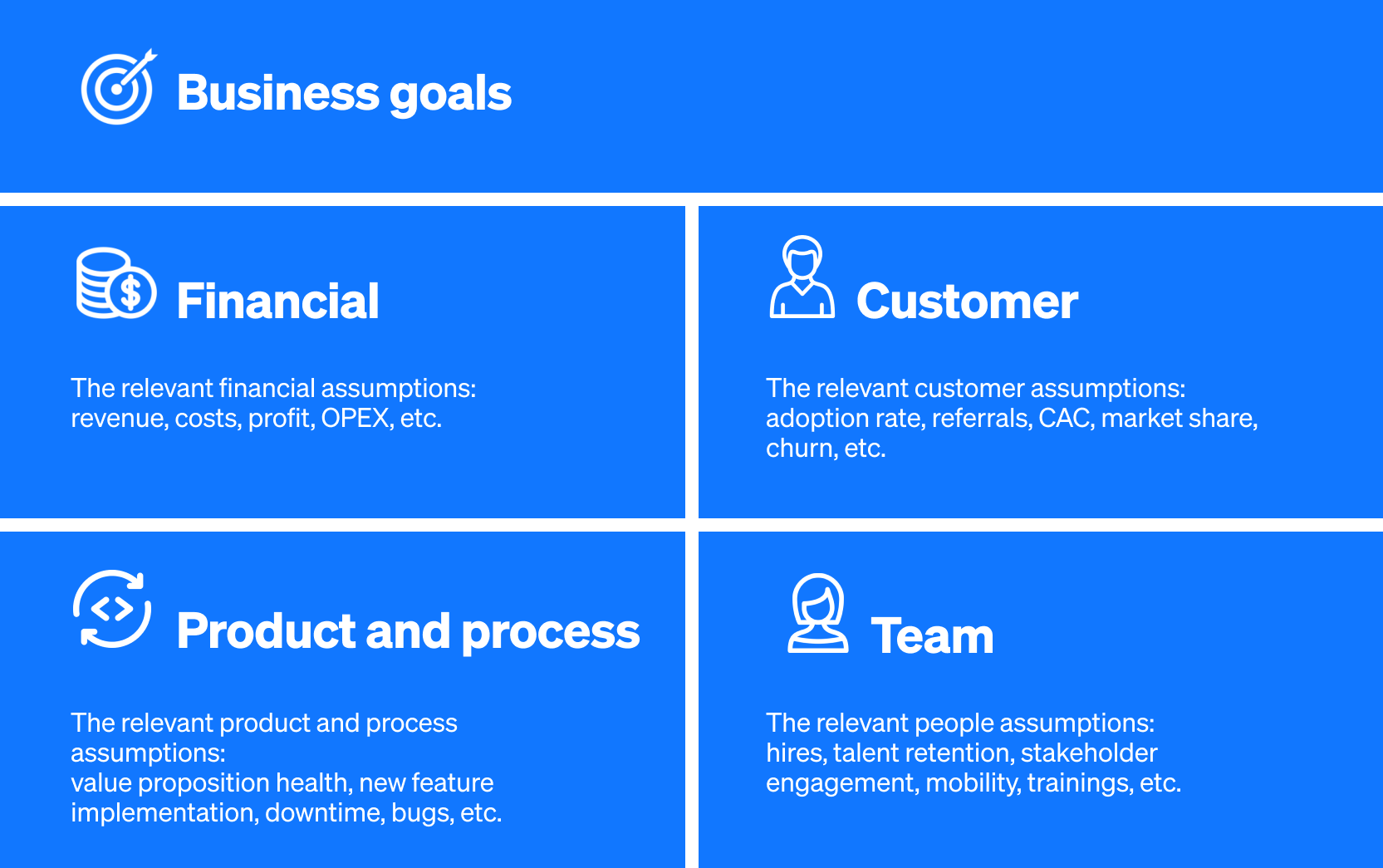Key takeaways
For years now, corporate venturing has been successfully used as a catalyst for innovation in large enterprises. However, it takes months of meticulous ideation, validation and development just to get to the MVP stage, where the real challenge begins: scaling.
According to McKinsey, two-thirds of a venture’s value is created when it scales to meet its target market demand. In other words, that’s where the magic happens. The problem is very few ventures make it to that stage:

So why do so many ventures fail to scale successfully? Well, for one thing, scaleups require a whole different set of skills and mindset than startups. You’ll still be focused on your offering, but you’ll also be growing your team, automating processes, refining your strategy and discovering new ways to establish your competitive edge.
The five tips below will help you effectively scale your venture and avoid some of the rookie mistakes often made during this pivotal phase. But before we get into that, let’s look at some of the differences between “growth” and “scaling”.

The difference between growth and scale.
Building a successful venture isn’t only about achieving growth; it’s about scaling - and there’s a big difference between the two. In this particular context:
- Growth happens when a company increases its revenue while at the same time increasing its costs. For example, if your company gains a few new customers but has to increase its costs to keep up with the new demand, that would be considered growth.
- Scaling is when you increase your revenue exponentially with only an incremental increase in costs. For example, companies like Google have successfully grown their customer base while investing relatively few resources to accommodate them. In doing so, they were able to increase their profit margin quickly in just a few years. That’s how you scale.
Although both are a good sign for your business, scaling is the way to go if you want to achieve long term sustainability and profitability. With that goal in mind, here are a few tried and true tips that will help you turn your startup into a successful scale-up
1. Attract and recruit the right talent
During the initial stages of a venture; you’re still defining your concept, which means that your business model, target audience and even core team is not yet set in stone. You’ll probably be working with a flat organisational structure that gives your team the flexibility to “wear different hats” and take on varied tasks and responsibilities. Small teams are also quite common during the startup phase, so outsourcing and external collaborations happen often.
The scaling phase is quite different because at that point, your venture is more defined (e.g. you’ve already validated your business case and launched your alpha product). Once you’ve set your long-term goals, milestones, KPIs and business strategy, it’s time to build your core team.
Start by doing an “inventory” to check if the skills you need for the scale phase are present in your current team. This will give you a good overview of any skill gaps or positions that have become less relevant. Once that’s done, you can move on to the hiring phase. Here are a few good tips to get you started:
- Hire people with an entrepreneurial mindset who have the vision, skills and motivation to make an impact and get things done.
- Get to know your candidates by encouraging them to present their multi-year vision and strategy during the recruitment process.
- Make sure your job description features your venture’s long term goals and ambitions. This will help you attract entrepreneurs that share your vision.
2. Build up your network and establish strategic partnerships
During the scale phase, it should always be a priority to grow your internal resources. Having said that, there are some instances when recruitment just isn’t the answer. In some cases, outsourcing can free you and your team to focus on the bigger picture (i.e. growing your business) instead of getting caught up in day-to-day matters.
Collaborate and build strategic partnerships with entrepreneurs and organisations that can help take your business forward (e.g. sales partners, service providers, suppliers, PR experts, etc.). These alliances can help strengthen your venture and facilitate the long-term success of your scale efforts.
3. Validate your strategy
The scaling phase is a good time to revisit, reassess and validate your business case. Validation before any big move is always beneficial because it can help you identify and address any weaknesses early on. An excellent way to start is by gathering the key learnings and insights gained during your alpha launch and using them as a baseline business case to work from. Make sure it includes:
- Any scaleup targets you had already established in previous phases.
- New venture horizons you might be interested in (e.g. new locations, premium offerings, new target groups, etc.).
- Any changes to your business model that have been made along the way.
Here are just a few key questions to ask yourself during validation:
- What are the most important metrics?
- How do they evolve over time?
- What three metrics are most important to corporate stakeholders?
Base your metrics on the core assumptions you have in these zones:

Once that’s done, you can use several lean validation techniques (e.g. smoke testing, online surveys, personal interviews etc.) to identify any weak points and get real customer data on your scaleup strategy.
4. Automate your processes
When it comes to scaling a venture, automation is a surefire way to get things done quicker, easier and for a lot less money. The trick is not only to identify the IT solutions you need but to find a way to integrate them to keep things running smoothly and efficiently.
Here are just a few of the processes you should consider automating for the scale phase:
- Marketing: Encourage your marketing team to use digital marketing tools and growth hacking techniques to create successful campaigns that can be replicated in the future.
- Customer Relationship Management (CRM): Finding the right CRM system can help you get the most out of your customer data and increase the collaboration between your sales and marketing teams.
- Finance and accounting: Automation in this area will enable you to access detailed and accurate financial data to make pivotal decisions at every step of the scale phase.
- Human resources: Finding the right HRMS will enable you to manage your team more effectively, track KPIs and speed up time-consuming tasks that would otherwise be done manually.
5. Define your competitive edge
A crucial part of successfully scaling your business is understanding the factors that give you a leg up over the competition. Most of the work in this area is done during the startup phase.
For example, let’s say your core business is selling indoor plants online, but during your startup phase, you discover that your offering is wildly popular with businesses (as opposed to individuals looking for house plants). In such a case, you might want to consider specialising in plants for offices to play on your strengths during the scaleup phase.
Final thoughts.
Taking a venture from startup to scaleup is hard. In fact, most companies go through a great deal of trial and error before finding their groove during the process. When it comes to the challenges involved, the great Steve Jobs described it best:
“Sometimes, when you innovate, you make mistakes. It is best to admit them quickly and get on with improving your other innovations.”
Despite the challenges, there is a lot of joy in seeing your vision turn into a thriving business, and if you do things right, you’ll have a lot of fun in the process. Following the tips above will help you achieve sustainable growth and get you closer to your long term growth goals.
If you’re about to embark on your own scaling journey, we wish you the best of luck! You’re in for quite a ride.
____
Are you a corporate entrepreneur looking to scale your venture? We can help you create a step-by-step roadmap to hit that next growth milestone while leveraging your unique corporate assets.
Scaling corporate ventures: the foundations.
Discover and understand the critical actions needed on the venture journey to scale successfully.








